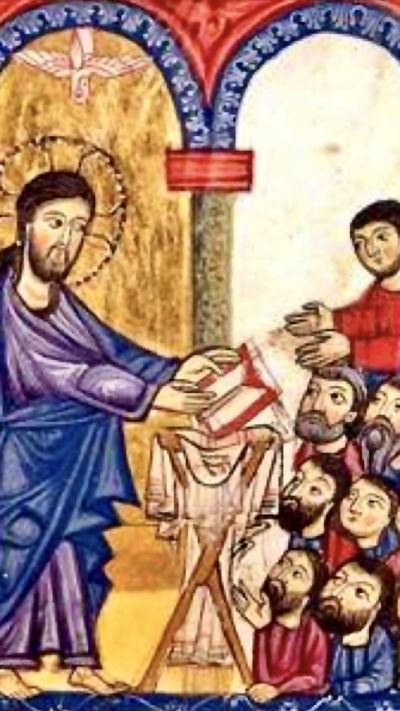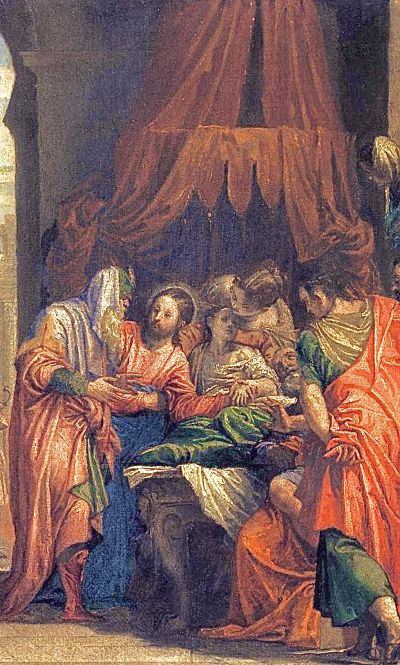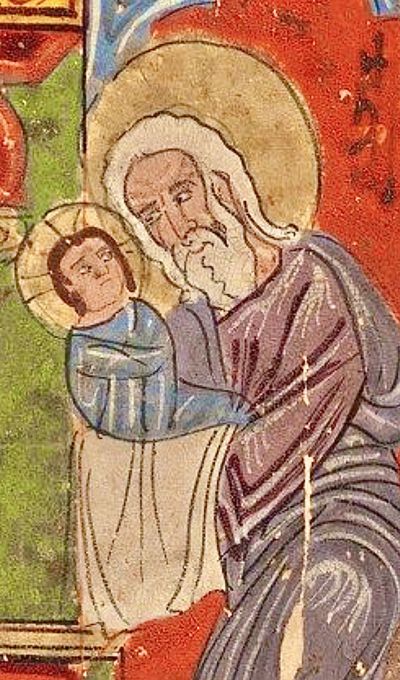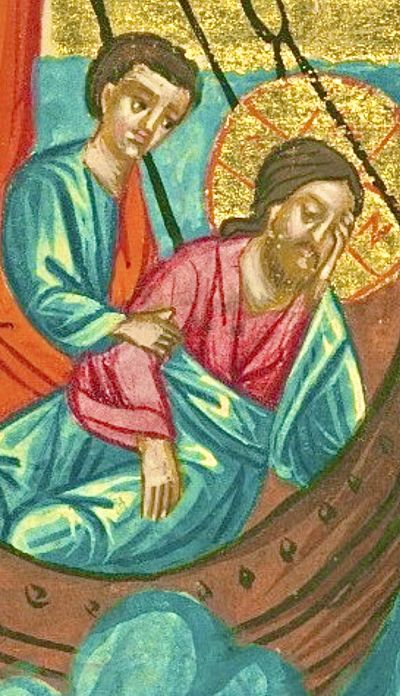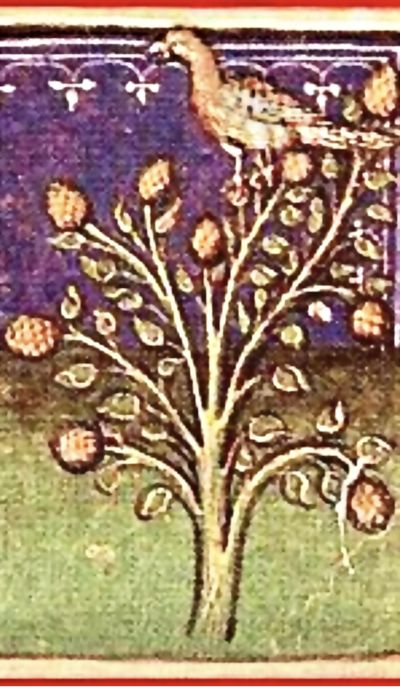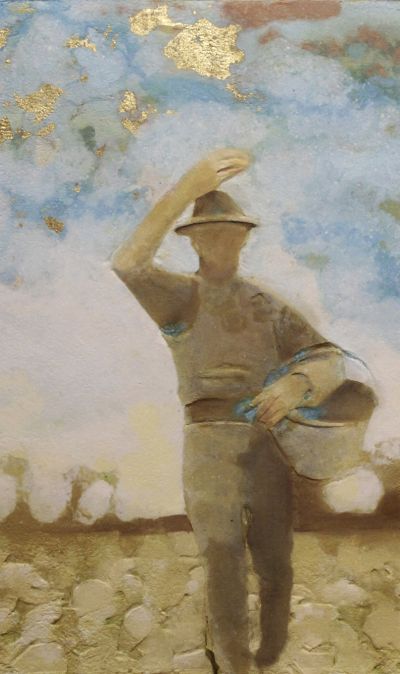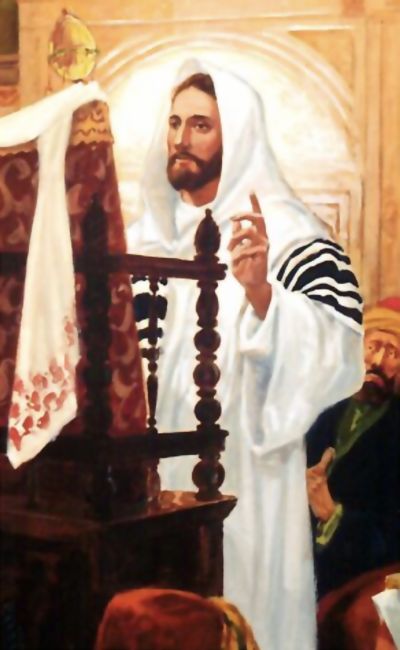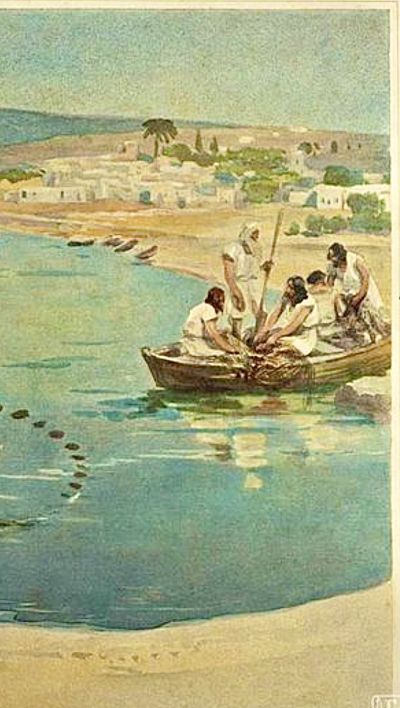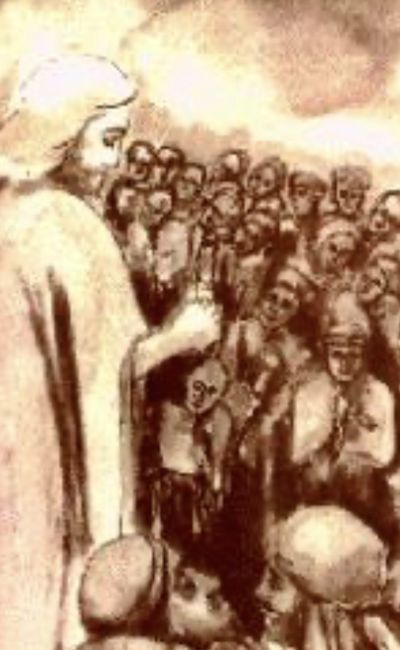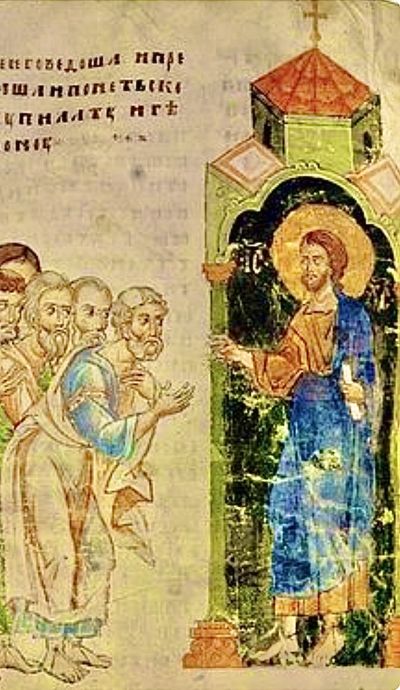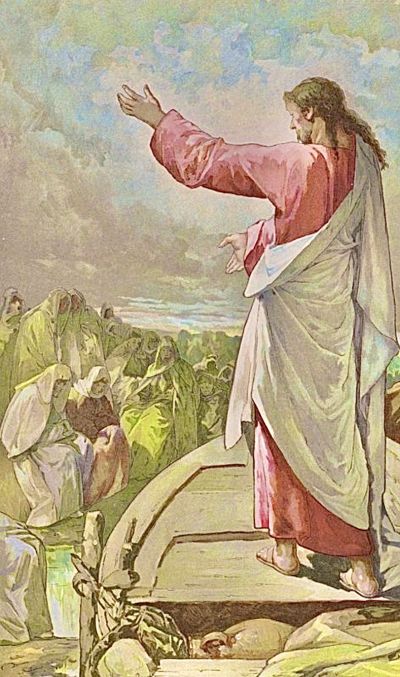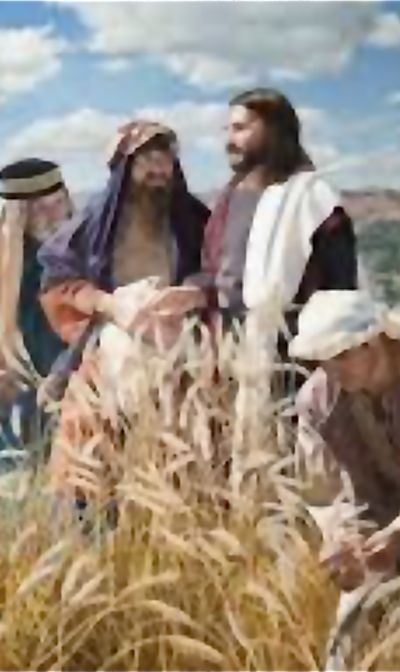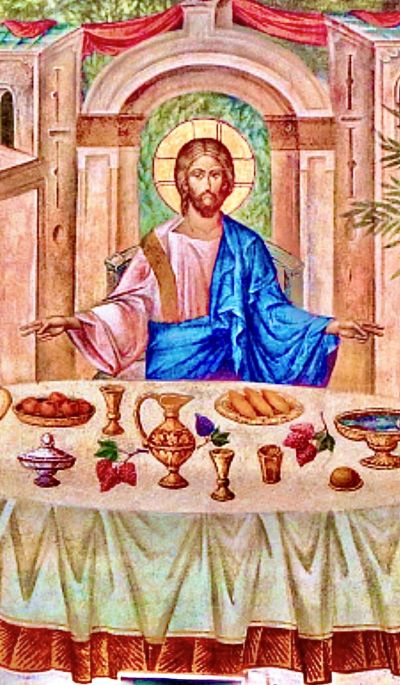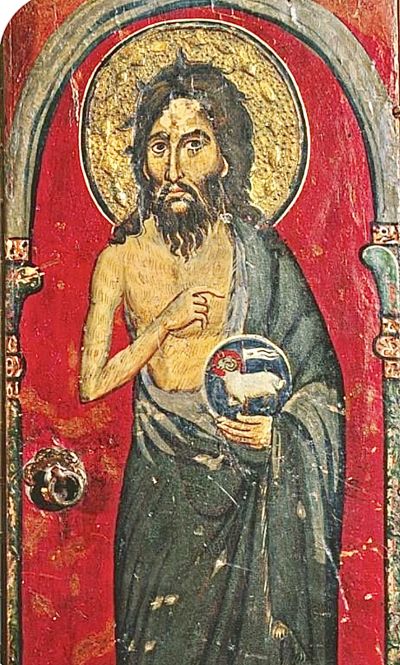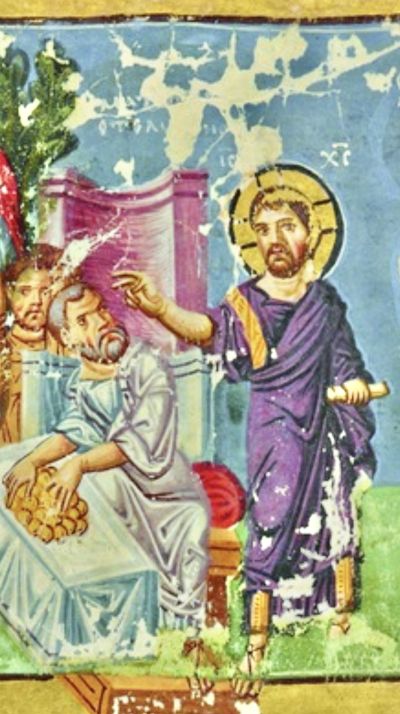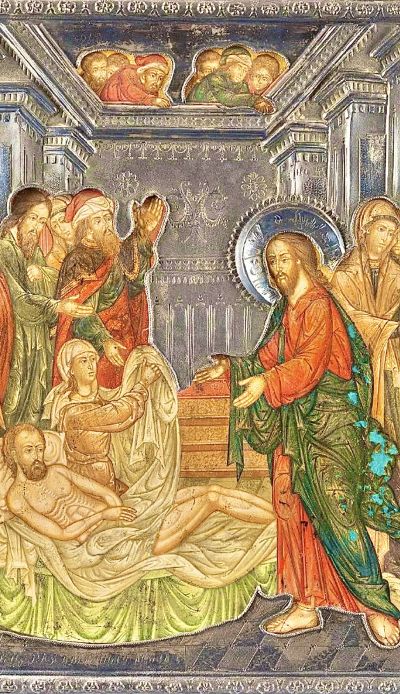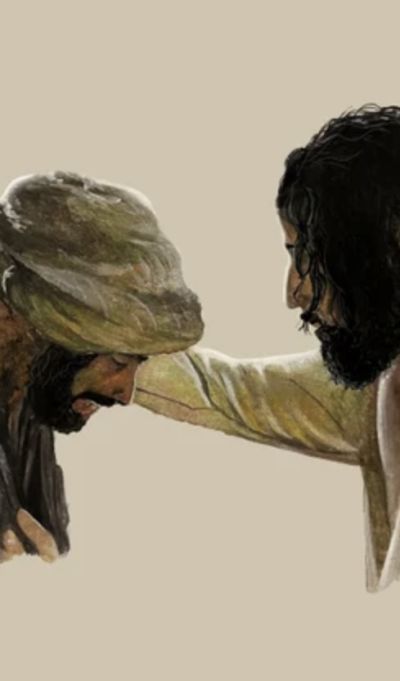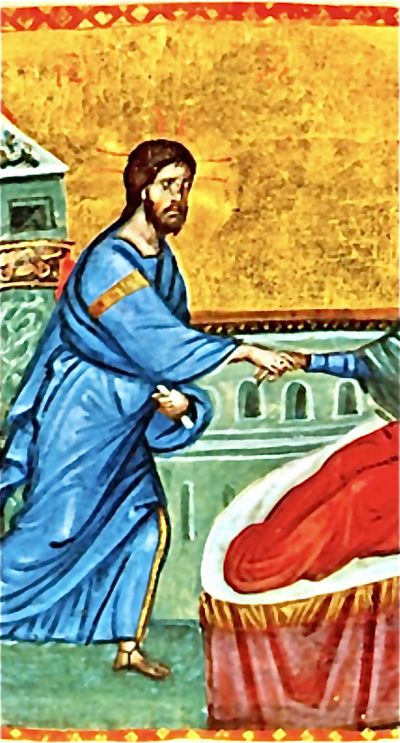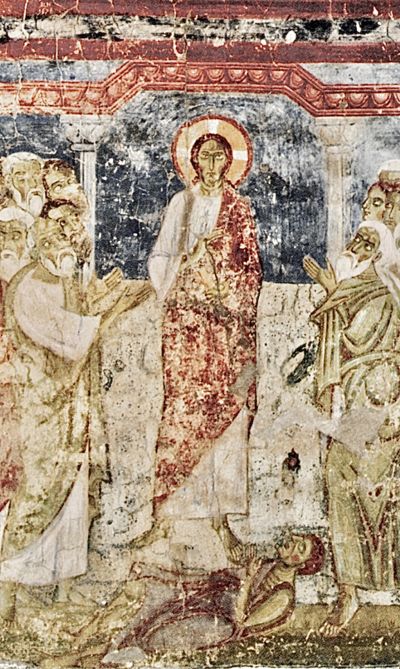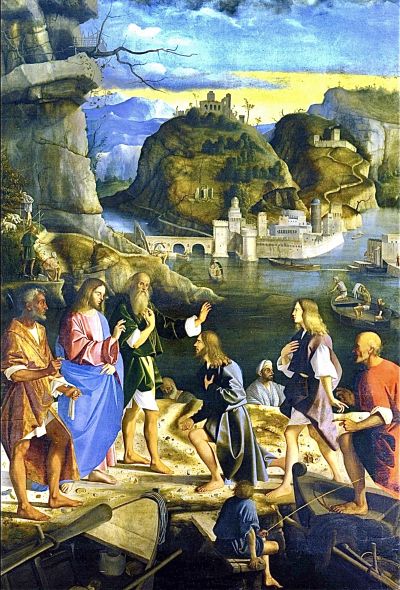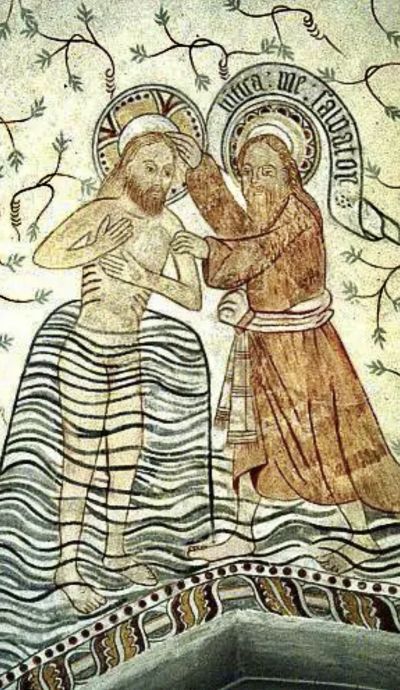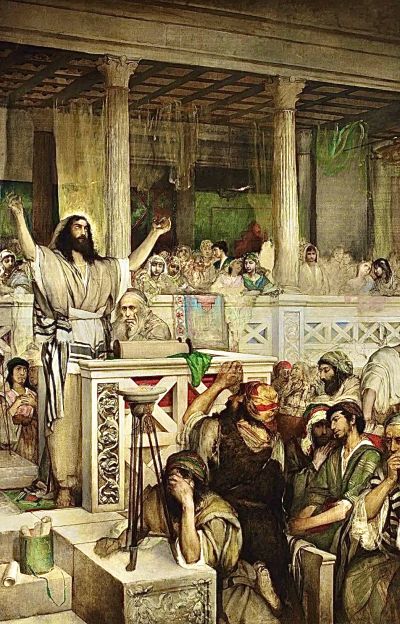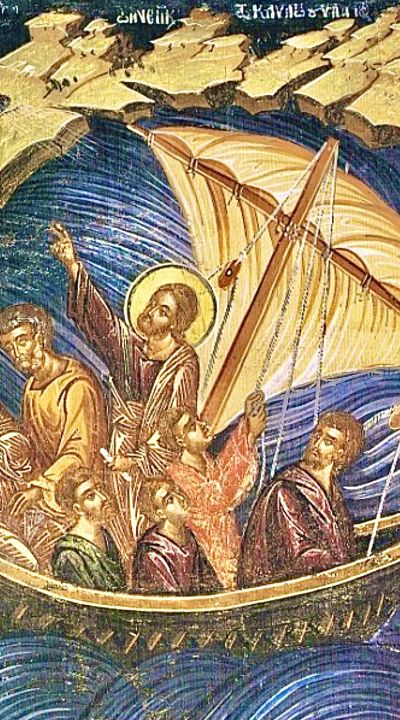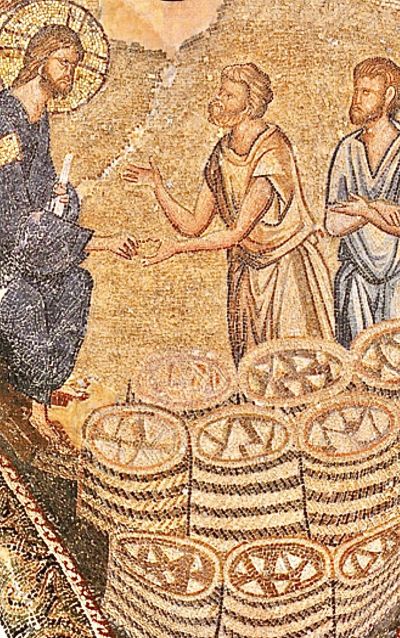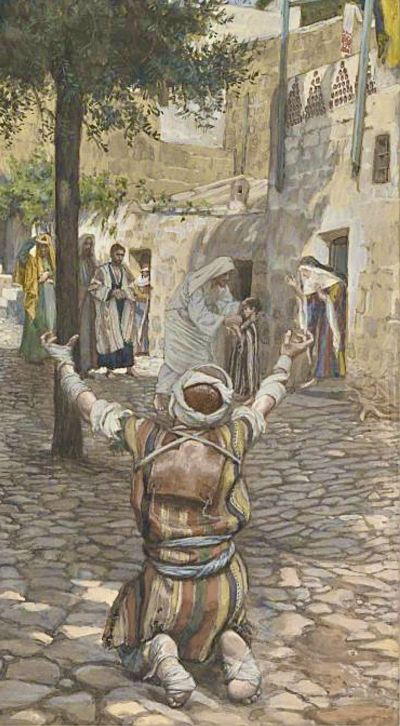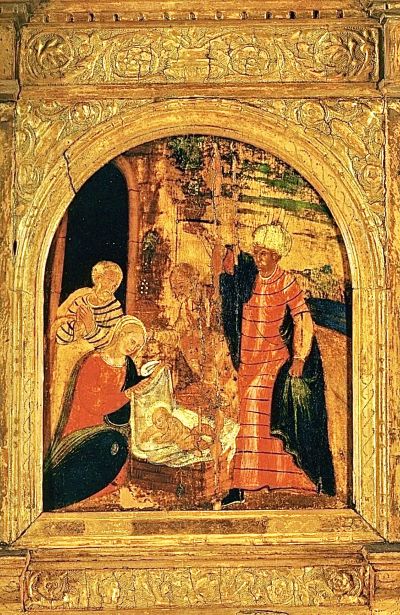Dialogo e Solstizio
Jan 27, 2026
Expectations, misunderstandings - and the spirit of the valley
Written by don Giuseppe Nespeca Published in Commento breve
Domestic side, not domestications (Mk 6:1-6) Where Faith is lacking, only small changes take place, not the staggering wonders of the alternative presence of God’s Kingdom (v.5). We do not…
84
Jan 26, 2026
Faith is Action, entrepreneurial; Life Force
Written by don Giuseppe Nespeca Published in Commento precedente
Faith and Healing, or exclusion (Mk 5:21-43) In Rome, at Mk’s time, the situation of confusion generated by the civil war seemed likely to become lethal for the survival of…
99
Jan 25, 2026
Contrasting Presentation: scrutinizing what is not being studied
Written by don Giuseppe Nespeca Published in Commento precedente
(Mal 3:1-4 Heb 2:14-18 Lk 2:22-40) The Lk’s Gospel passage narrates the surprising response of the Father to the prophecy of the last of the minor prophets (Mal 3,1-4). An…
121
Jan 24, 2026
Beatitudes and reversing, between ability and fragility
Written by don Giuseppe Nespeca Published in Commento precedente
Turnover in the Church, antidote to unilaterality (Mt 5:1-12) We feel ephemeral and often disappointed, yet we want to be happy, not just here and there: we are uncertain, yet…
141
Jan 23, 2026
God hostage, or different view of danger
Written by don Giuseppe Nespeca Published in Commento precedente
(Mk 4:35-41) The whole Gospel of Mk is an articulated answer to the question: ‘who is Jesus?’ (v.41). His direction of travel seems to the wrong direction, and brazenly breaks…
135
Jan 22, 2026
Rhythm of Nature. The evolutionary factor
Written by don Giuseppe Nespeca Published in Commento precedente
From below, not from a summit (Mk 4: 26-34) Here we are introduced to a different mentality, to a new Family, to another Kingdom, not very "elevated"; indeed, completely reversed.…
173
Jan 21, 2026
Lantern, Measure and prejudices
Written by don Giuseppe Nespeca Published in Commento precedente
(Mk 4: 21-25) Mk's is a narrative and popular catechesis, which reflects the problems of a very primitive community of Faith - compared to those of the other Gospels. His…
146
Jan 20, 2026
A new God, without planning: perhaps a deluded one?
Written by don Giuseppe Nespeca Published in Commento precedente
In the difference between common religiosity and Faith (Mt 13:1-23) The parables compare the lived reality and the world of the Spirit: «And other [seeds] fell on the earth that…
212
Jan 19, 2026
How to rebuild the Temple?
Written by don Giuseppe Nespeca Published in Commento precedente
The Lord wants new people, who listen (Mc 3,31-35) In the life of those who are challenged by the relationship of Faith, to become blood relatives of the Father (according…
134
Jan 18, 2026
The only unforgivable sin
Written by don Giuseppe Nespeca Published in Commento precedente
«Blaspheming the Holy Spirit» (Mk 3: 22-30) Holy Spirit is a term that translates the Hebrew Ruah haQodesh: impetuous wind, not a stagnant air. «Spirit»: energy that blows up the…
132
Jan 17, 2026
Arduous Crossing, not poor Happiness
Written by don Giuseppe Nespeca Published in Commento precedente
The Call of the fishermen (Mt 4:12-23) It is not the call of the boss, but the invitation of the Friend, who lives firsthand what he preaches, exposing himself. To…
186
Jan 16, 2026
Crisis, Good News and social aspect
Written by don Giuseppe Nespeca Published in Commento precedente
Overwork Mission Family, by unbalanced (Mk 3:20-21) Today’s short Gospel can be interpreted according to different reading plans: let’s start with a vocational approach. The family core of society should…
171
Jan 15, 2026
Axis is to be with Him
Written by don Giuseppe Nespeca Published in Commento precedente
He calls to Himself and ‘makes’ the Twelve: big emergency, by small Name (Mk 3:13-19) In Christ, the physician of suffering humanity, the things of the soul seem different, and…
153
Jan 14, 2026
Opposite Face and small Boat: the (simple) expulsion of demons
Written by don Giuseppe Nespeca Published in Commento precedente
(Mk 3:7-12) The Kingdom of the Father announced by Jesus wasn’t at all tied to a creed any: God had not only a Face different from the ‘Empire system’ and…
230
Jan 13, 2026
Discernment becomes acute: symbolism of the Hand
Written by don Giuseppe Nespeca Published in Commento precedente
Different concerns, and humanizing action (Mk 3:1-6) Doing good and raising the real person - as he is, in his own uniqueness - is the only non-negotiable value; criterion of…
238
Jan 12, 2026
Conflicts of conscience: Law or hunger
Written by don Giuseppe Nespeca Published in Commento precedente
Incarnation, or the spiritual module without humanity (Mk 2:23-28) On the way of conversion, conflicts of conscience are not parentheses or accidents of the path, but crucial nodes. The genuineness…
230
New Wineskins and vocational Freedom (Mk 2:18-22) Fasting is a regenerative principle that has a unique healing power, both detoxifying and essential. It activates the energies of ‘humanity’ and at…
184
Jan 10, 2026
Look at the Lamb, and the Dove
Written by don Giuseppe Nespeca Published in Commento precedente
Revolution of healthy Tenderness (Jn 1:29-34) In the fourth Gospel the Baptist is not «the forerunner», but a «witness» of the Lamb Light that raises basic questions. Alarmed, the authorities…
191
Jan 9, 2026
But is it permissible for him to participate in worship?
Written by don Giuseppe Nespeca Published in Commento precedente
Sitting and keeping eyes on the accounting records, only then rich - nay, ‘sir’ (Mk 2:13-17) At the time when Mk drafted his Gospel, in the communities of Rome a…
193
Jan 8, 2026
The resource of impediments
Written by don Giuseppe Nespeca Published in Commento precedente
Religiosity and Faith: unusual crossroads of Tenderness (Mk 2:1-12) Jesus teaches and heals. He does not announce the Sovereign of religions, but a Father - attractive figure, who neither threatens…
149
Jan 7, 2026
Discomfort: place of the Contact
Written by don Giuseppe Nespeca Published in Commento precedente
The leper and the Touch (Mk 1:40-45) Jesus' Touch sums up His life, teaching and mission. God is all off the line, and not afraid of contaminating Himself - not…
187
Jan 6, 2026
The liberated mother-in-law and her path
Written by don Giuseppe Nespeca Published in Commento precedente
New life-wave (Mk 1:29-39) The Lord does not admit the misunderstanding of a faith that reduces him to the same level as acclaimed santons and healers (vv.34b.36-38). Too many seek…
167
Jan 5, 2026
Sparks with Jesus: the turning point comes immediately
Written by don Giuseppe Nespeca Published in Commento precedente
The immondous and quiet spirit, in synagogue (Mk 1:21b-28) After inviting the first disciples to the sequel (Mk 1:16-20) making them «fishers of men», Christ brings his intimates - precisely…
170
Jan 4, 2026
The forward Conversion trajectory
Written by don Giuseppe Nespeca Published in Commento precedente
Fishermen: not backward, nor fashionable (Mk 1:14-20) The Kingdom is close if thanks to our involvement God comes to earth and Happiness knocks at the door, addressing us to something…
171
Jan 3, 2026
Loving one’s limits: between Faith and religion
Written by don Giuseppe Nespeca Published in Commento precedente
The muddy condition of the Jordan and the human dimension of Jesus (Mt 3:13-17; Mk 1:7-11; Lk 3:21-22; Jn 1:30-34) The Jordan River was never navigable; it simply marked a…
179
Jan 2, 2026
The platform that makes the breakthrough
Written by don Giuseppe Nespeca Published in Commento precedente
In the Synagogue and from the precipice (Lc 4:14-22) In ancient Israel, the patriarchal family, clan and community were the basis of social coexistence. They ensured the transmission of the…
231
Jan 1, 2026
On troubled waters, with a headwind
Written by don Giuseppe Nespeca Published in Commento precedente
(Mk 6:45-52) Roman communities of the time of Mk [the year of the four Caesars] were on the high seas and the disciples seemed to be alone: the Master had…
208
Dec 31, 2025
The diverse solution. Vocation to offer the world
Written by don Giuseppe Nespeca Published in Commento precedente
Multiplication by Sharing (Mk 6:34-44) «Man is a limited being who is himself limitless» (Fratelli Tutti [Brethren All] n.150). In our hearts we have a great longing for fulfilment and…
180
Dec 30, 2025
Conversion and the Neighbouring Kingdom
Written by don Giuseppe Nespeca Published in Commento precedente
Welcoming and not transferring assessments (Mt 4:12-17.23-25) The Kingdom is near if thanks to our involvement God comes to earth and happiness knocks on the door, converting us to something…
179
Dec 29, 2025
Epiphany: more adventure is needed
Written by don Giuseppe Nespeca Published in Commento precedente
Childbirth and Manifestation (Mt 2:1-12) Mt writes in the 80s for the third generation worshippers. It is a time when he sees that in the first communities the pagans entered…
190
Familiarity at the human level makes it difficult to go beyond this in order to be open to the divine dimension. That this son of a carpenter was the Son of God was hard for them to believe. Jesus actually takes as an example the experience of the prophets of Israel, who in their own homeland were an object of contempt, and identifies himself with them (Pope Benedict)
La familiarità sul piano umano rende difficile andare al di là e aprirsi alla dimensione divina. Che questo Figlio di un falegname sia Figlio di Dio è difficile crederlo per loro. Gesù stesso porta come esempio l’esperienza dei profeti d’Israele, che proprio nella loro patria erano stati oggetto di disprezzo, e si identifica con essi (Papa Benedetto)
These two episodes — a healing and a resurrection — share one core: faith. The message is clear, and it can be summed up in one question: do we believe that Jesus can heal us and can raise us from the dead? The entire Gospel is written in the light of this faith: Jesus is risen, He has conquered death, and by his victory we too will rise again. This faith, which for the first Christians was sure, can tarnish and become uncertain… (Pope Francis)
These two episodes — a healing and a resurrection — share one core: faith. The message is clear, and it can be summed up in one question: do we believe that Jesus can heal us and can raise us from the dead? The entire Gospel is written in the light of this faith: Jesus is risen, He has conquered death, and by his victory we too will rise again. This faith, which for the first Christians was sure, can tarnish and become uncertain… (Pope Francis)
The ability to be amazed at things around us promotes religious experience and makes the encounter with the Lord more fruitful. On the contrary, the inability to marvel makes us indifferent and widens the gap between the journey of faith and daily life (Pope Francis)
La capacità di stupirsi delle cose che ci circondano favorisce l’esperienza religiosa e rende fecondo l’incontro con il Signore. Al contrario, l’incapacità di stupirci rende indifferenti e allarga le distanze tra il cammino di fede e la vita di ogni giorno (Papa Francesco)
An ancient hermit says: “The Beatitudes are gifts of God and we must say a great ‘thank you’ to him for them and for the rewards that derive from them, namely the Kingdom of God in the century to come and consolation here; the fullness of every good and mercy on God’s part … once we have become images of Christ on earth” (Peter of Damascus) [Pope Benedict]
Afferma un antico eremita: «Le Beatitudini sono doni di Dio, e dobbiamo rendergli grandi grazie per esse e per le ricompense che ne derivano, cioè il Regno dei Cieli nel secolo futuro, la consolazione qui, la pienezza di ogni bene e misericordia da parte di Dio … una volta che si sia divenuti immagine del Cristo sulla terra» (Pietro di Damasco) [Papa Benedetto]
And quite often we too, beaten by the trials of life, have cried out to the Lord: “Why do you remain silent and do nothing for me?”. Especially when it seems we are sinking, because love or the project in which we had laid great hopes disappears (Pope Francis)
E tante volte anche noi, assaliti dalle prove della vita, abbiamo gridato al Signore: “Perché resti in silenzio e non fai nulla per me?”. Soprattutto quando ci sembra di affondare, perché l’amore o il progetto nel quale avevamo riposto grandi speranze svanisce (Papa Francesco)
The Kingdom of God grows here on earth, in the history of humanity, by virtue of an initial sowing, that is, of a foundation, which comes from God, and of a mysterious work of God himself (John Paul II)
duevie.art
don Giuseppe Nespeca
Tel. 333-1329741
Disclaimer
Questo blog non rappresenta una testata giornalistica in quanto viene aggiornato senza alcuna periodicità. Non può pertanto considerarsi un prodotto editoriale ai sensi della legge N°62 del 07/03/2001.
Le immagini sono tratte da internet, ma se il loro uso violasse diritti d'autore, lo si comunichi all'autore del blog che provvederà alla loro pronta rimozione.
L'autore dichiara di non essere responsabile dei commenti lasciati nei post. Eventuali commenti dei lettori, lesivi dell'immagine o dell'onorabilità di persone terze, il cui contenuto fosse ritenuto non idoneo alla pubblicazione verranno insindacabilmente rimossi.


